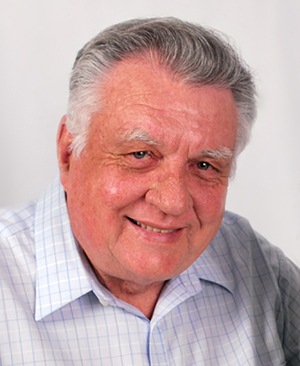Infrastructure Financial game changer – once Australia wakes up
FOR ALL the rhetoric in political circles about finding innovative new ways to finance and develop infrastructure, so far it seems no-one has heeded the call of Queensland-based IFO, an infrastructure financial trading platform.
In a recent blog on the Regional Economic Development (RED) Toolbox, which is also featured in the new Business Acumen Game Changers Special Report, IFO chief executive David Wallader asked region economic development authorities this most pertinent question, “What infrastructure would you develop if you already had access to the money? And what if this funding was not a loan to be repaid?” 
Mr Wallader is allowed to ask those questions because he is also capable of providing the answers through providing that funding.
Mr Wallader’s IFO company – the acronym stands for Infrastructure Financial Opportunity Pty Ltd – has managed to introduce a European-based financial trading platform, that only provides funding for major infrastructure and research, to Australia in 2016.
While the infrastructure trading platform is not new – it has been operating in Europe for 40 years under the orbit and regulations of the European Central Bank, the International Monetary Fund and the Federal Reserve, with the International Chamber of Commerce (ICC) in oversight – it is new to Australia.
That’s because the platform relies upon the provision of a bank guarantee secured by capital assets – usually from the entity constructing the project or the company engaging in the project, issued in their name, not transferrable or assignable to any third party (the trader) – and the starting point in Australia is now €100million (euros).
“The issuance of the guarantee is not a form of security as we know of it in the general banking requirement of today – it is a format of communication, confirming the recipient of the guarantee does have the assets in support and is worthy of the Trading Platform supporting the recipient to assist with the funding of the project,” Mr Wallader said. “It is not by way of a loan but by a joint venture funding arrangement only, to fund the project and for it to be debt free on completion.”
That is the good news, for prior to Mr Wallader arranging that minimum bank guarantee, the entry point had been US$500 million – and virtually no Australian commercial entity could raise a guarantee of that size. But many can raise today’s lower amount. The platform is ready to go in Australia and there is certainly no shortage of projects.
“There is so much opportunity to enhance particular regions throughout Australia with astute development of major infrastructure. The problem, as we all know, is funding that infrastructure,” Mr Wallader said. “I know we can change that. 
“Australia has traditionally relied upon State and Federal Governments to take the lead in this area, but I can see that Australia has an even greater opportunity to get major infrastructure happening through private-led investment.
“Region-changing projects such as rail (and fast rail), airports, ports, energy developments, tunnels, dams, major integrated agriculture projects, medical research … you name it … can happen faster, at lower cost, and with no impost on the taxpayer.
“That’s right – no project funding is needed from the government that ‘designs’ and facilitates this infrastructure, yet the government bodies that help create it still ‘own’ it,” Mr Wallader said.
LACK OF UNDERSTANDING
Mr Wallader has been disappointed by the lack of understanding in Australia about viable alternative funding for large-scale infrastructure development. He believes the onus can come off the public purse for many major projects, but he is having trouble getting Australian officialdom to comprehend what can be achieved.
“To my understanding, there are only two infrastructure trading platforms in the world today that organise this type of funding and I have lobbied hard for one of them – based in the United Kingdom – to modify its foundation funding levels so that Australia can access it,” Mr Wallader said.
“My company, Infrastructure Financial Opportunity Pty Ltd, is helping this platform to find suitable infrastructure projects around Australia.
“The system is simple and elegant, is closely audited by world financial compliance authorities … and the funding principle has been utilised for more than 60 years in Europe and for certain projects in Asia.”
Mr Wallader pointed out that large parts of Japan’s fast rail development had been funded in this way “because it gets economy-changing major infrastructure supported and built more effectively than any other financial system”. 
“Governments, including their statutory bodies, and private enterprises that back this infrastructure funding method, can more rapidly open up new economic growth areas, I believe,” he said. “I can see a day when several local governments would get together to develop, say, a rail loop that linked key agricultural production and tourism areas with a regional airport or port, and this loop could be augmented by solar panels to become an energy production system in its own right.
“It’s possible, with the right kind of regional leadership.”
DEBT FREE COMPLETION
Mr Wallader said a A$160 million bank guarantee against the assets of an enterprise could generate enough cash to support a project of more than $1 billion, providing sufficient monthly cashflow from day one.
He said funds were to be “held in the entity constructing the project or the company engaging in the project development, under their supervision – not waiting on third party inspection of approval for progress drawdowns”.
At the end of the trading contract, the bank guarantee is handed back to the sponsor company “prior to the expiry date, without any prejudice or burden”.
“At the completion of the trading period contracted, usually just a few years, that infrastructure would be debt free and effectively owned by the government entities or private enterprise that commissioned the project,” Mr Wallader said.
“The reason the platform has been re-organised for Australia is that the European financiers see enormous prospects for our national infrastructure development and can see that a great many projects would get off the ground, given the right financial opportunity.
“I hope I will be able to play a role in bringing at least some of them to fruition through this highly innovative secure audited financial system.”
TRIED TO HELP ARRIUM
Mr Wallader has been making progress in plans to assist Northern Australia’s substantial infrastructure development proposals, and he has also tried to recover Arrium from voluntary administration and sale – but unfortunately to no avail.
His initial bid, to use a $500 million guarantee from Australia’s big four banks as secured creditors for the 94 companies of steelmaker Arrium – which went into voluntary administration in early 2016 – was turned down by the appointed administrator, due to the Deed of Company Arrangement (DOCA) requirement and the discovery of an ‘out of the ordinary’ position of the ‘Big Four’ banks position of ranking as creditors.
That was even in spite of Mr Wallader’s plan to return 100 cents in the dollar to all creditors and return the company debt free to its shareholders. He was also planning to use the trading platform to fund research into Australian steelmaking, to help extend Arrium’s market advantage.
Mr Wallader said the trading platform’s management had accepted his proposal as a viable option because of the role Arrium was destined to play in the development of rail infrastructure and other major public projects.
He said he was disappointed by the disinterest of the banks in his proposal – which he presented to them on several occasions from September 2016 to May 2017 – until he discovered (and it was confirmed by the administrator in writing, 11 months after his initial approach) that the banks were not secured creditors of Arrium as he would have expected them to be, with a total of A$2billion combined exposure.
He had not factored such a peculiar possibility into his proposal calculations.
“That was a shock, I can tell you, to discover that,” Mr Wallader said. “I did not think such an oversight was possible in today’s banking environment in Australia.
“It’s a shame because I think we had the best outcome possible for Arrium and the Australian economy covered up until that point.”
ends

 How to resolve AdBlock issue?
How to resolve AdBlock issue?